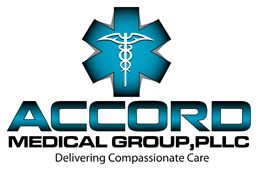Thyroid Disease & Nodules
Introduction
Anatomy
Causes
Symptoms
Thyroid nodules may or may not cause symptoms. Large nodules that put pressure on neck structures can cause breathing problems, voice changes, pain, swallowing difficulties, or goiter. Thyroid nodules can also cause symptoms of hypothyroidism or hyperthyroidism.Diagnosis
Treatment
Am I at Risk
Thyroid nodules occur more frequently in women than in men. The risk of developing a thyroid nodule increases with age. Other risk factors include:
• A family history of thyroid cancer
• Prior radiation treatment or radiation exposure to the head and neck
• Iodine deficiency. This is more common in parts of the world where diets are low in salt.
• Thyroid hormone suppression
• Hashimoto’s disease, a type of thyroid disease
Complications
Thyroid nodules can affect the way the thyroid gland functions and lead to hypothyroidism or hyperthyroidism.
Copyright © - iHealthSpot Interactive - www.iHealthSpot.com
This information is intended for educational and informational purposes only. It should not be used in place of an individual consultation or examination or replace the advice of your health care professional and should not be relied upon to determine diagnosis or course of treatment.
The iHealthSpot patient education library was written collaboratively by the iHealthSpot editorial team which includes Senior Medical Authors Dr. Mary Car-Blanchard, OTD/OTR/L and Valerie K. Clark, and the following editorial advisors: Steve Meadows, MD, Ernie F. Soto, DDS, Ronald J. Glatzer, MD, Jonathan Rosenberg, MD, Christopher M. Nolte, MD, David Applebaum, MD, Jonathan M. Tarrash, MD, and Paula Soto, RN/BSN. This content complies with the HONcode standard for trustworthy health information. The library commenced development on September 1, 2005 with the latest update/addition on February 16, 2022. For information on iHealthSpot’s other services including medical website design, visit www.iHealthSpot.com.

